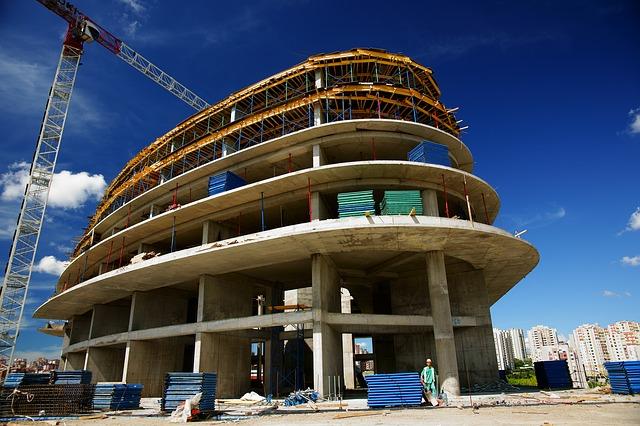
The field of Engineering has continued to experience growth and expansion over the years.
New areas of engineering have continued to emerge, and the already existing ones are continuously being modified and split into specific areas of specializations.
This is the case of structural engineering, which can be seen as a specialty in civil engineering. However, it is now being recognized as an independent field of its own in most countries.
One is usually awarded a certification of structural engineering at a master's degree level, upon completion of his or her bachelor's degree in civil engineering.
A structural engineer is a building technology expert trained to analyze and design the strength, rigidity, stability, and form of buildings, especially high-risk structures such as skyscrapers, and bridges.
Structural Engineer Scope of Services
Structural engineers don’t only sit in an office all day making designs on computers. They are also present on construction sites to ensure the implementation of these designs according to the prescribed standards and specifications.
Below is an explicit exposition of what structural engineers do.
Design of Building Structures
This is one of the most primary functions of a structural engineer. After the architect is done with the architectural design of a building, a structural engineer calculates the extent of load the structure is meant to carry, designs a suitable structure that can withstand the load, and prescribes the materials suitable for such construction.
It’s the job of a structural engineer to factor in different physical conditions (such as weather and topography of the land) that may affect the lifespan of the intended structure.
Structural engineers work closely with architects to achieve buildings that are solid, appealing, and suitable for their intended purpose. They make maximum use of their engineering skills to design convenient foundation plans, support beams, columns, and roofs to achieve a long-lasting building.
In any type of construction, safety is of utmost importance during the construction and the usage of the building. It's the job of a structural engineer to design user-friendly buildings and favorable logistics for workers on site.
Structural engineers are thoroughly trained to use mathematical and engineering concepts to solve building problems. They also use computer-aided design software to achieve complex design structures.
Maintenance of Building Structures

Periodic maintenance is the secret to a long-lasting building.
From time to time, a structural engineer is meant to assess the structural members of a building and ensure that they are not deteriorating and don’t risk failing at any time.
He is to detect defects in any part of the building, supervise the repair of the defect, and offer professional advice on how to prevent a recurrence. This is to imply that as long as a building structure exists, the services of a structural engineer will continually be needed.
Site Management
The structural engineer carries out supervisory activities on the construction site. From time to time, he visits the construction site to ensure that the craftsmen, artisans, and laborers follow the laid-out plan for the building.
He is also responsible for organizing the supply and delivery of building materials. During the supply of building materials, the use of heavy-duty vehicles and machines is usually employed.
These vehicles require a high level of operational and directional skill when they are to be used on the site. The job of the structural engineer is to make sure that these vehicles and machines operate in a way that will cause minimal disturbance to the construction process, and won't pose danger to the workers on the site.
Structural engineers also enforce full safety measures on-site. They ensure that workers are fully on their Personal Protective Equipment (PPE), that building materials and equipment are stored properly, and that there's a restricted entry for unauthorized persons into the site.
Preparation of Reports
Structural engineers are trained to ascertain the strength of buildings. When a building begins to show some structural defects, it's best to consult the services of a structural engineer to ascertain the severity and implications of the defects.
Also, when a building is about to be purchased, it’s pertinent that a structural engineer is consulted to give a comprehensive report of the state of the building.
This will enable faults to be detected and corrected on time before they degenerate to larger ones that will incur more costs during repair, and even pose a danger to human lives.
Obtaining Building Approvals
In most localities, the town planning agencies must issue approval before a building project is carried out. Any building erected without approval from appropriate authorities risks being demolished. It is the job of structural engineers to ensure that buildings are erected following the laid down standards.
After structural engineers have designed their proposed building plan, they submit the plan to the town planning agency who may subject the plan to further scrutiny to ensure that the plans follow the government’s requirements for buildings in the area.
The agency may also assess the feasibility of erecting such a building in the town and the impact it will have on the town (economically and otherwise).
Also, during this process, structural engineers act as liaison officers. They get in talks with the government (or any other concerned body) over the building project. They are in the best position to convince concerned authorities about the efficiency of the proposed building plan.
Selection of Appropriate Materials for Construction
Structural engineers are in the best positions to select efficient and standard materials to be used for construction. During the selection process, they may subject the materials to laboratory tests to verify their strength.
Survey of Construction Sites
Before the construction of a building begins, tests must be run on the soil to determine its properties and suitability for the intended building project. During surveys, structural engineers try to devise possible ways of diverting the heavy flow of water (flood), construct an efficient drainage system, and prevent heavy wind from hitting the building by strategically planting trees to act as windbreakers.
Investigate Collapsed Structures
Whenever a building collapses, there is usually a setup of a team of professionals consisting of architects, structural engineers, and geotechnical engineers, who will carry out investigations on the cause of the collapse.
The job of the structural engineer, in this case, is to analyze the strength of the materials used during construction, the solidness of the foundation of the building, the property of the soil, and other factors to check if they were suitable for the collapsed building.
Where You Can Find a Structural Engineer
Finding a structural engineer for your building project is pretty easy. Structural engineers are usually employed by specific organizations and companies, even though some may choose not to work under the auspices of any firm, but independently, only reaching out to other professionals if the need arises.
Listed below are typical places where you can find the services of structural engineers.
Construction Consultancy Firms
Construction consultancy firms consist of a team of construction experts who offer professional advice and provide designs for an intended building. This is a typical place where you can find a structural engineer because the services of a consultancy firm are in sync with the job descriptions of a structural engineer.
Construction Companies
Many construction companies employ the services of structural engineers, who actively take part in the pre-construction, construction, and post-construction activities of the company. The services of a structural engineer are invaluable to construction companies.
However, using this means to employ the services of a structural engineer may involve patronizing the construction company itself, which is not also out of place.
Local Town Planning Authorities
Structural engineers are often among the personnel employed in town planning agencies. They assess the building plans of buildings and determine if they meet standard engineering practices. They also ensure that the buildings in a locality are in line with the government’s agenda of buildings for the town.
Utility Companies
Companies that render utility services such as the supply of water, removal of sewage, supply of electricity, and supply of natural gas often employ the services of structural engineers.
These engineers may be stationed at the company’s facilities to maintain and manage the facilities or be involved in site duties.
Rendering utility services to some buildings (such as high rising buildings and complex structures) may require the services of structural engineers.
They can manipulate the technicalities of the buildings to ensure that the utility services are rendered without the building undergoing defects and endangering human lives in the process.
You may choose to seek the services of a structural engineer working in a utility company.
Conclusion
The collapse of buildings is majorly caused by negligence. This negligence may stem from the non-consultancy of structural engineers before erecting buildings or by unqualified personnel that pose as structural engineers.
It’s best to consult a qualified structural engineer before carrying out your building projects. Failure to do so may result in casualties and waste of resources. It may equally incur the wrath of government agencies.









Leave a comment
This site is protected by hCaptcha and the hCaptcha Privacy Policy and Terms of Service apply.